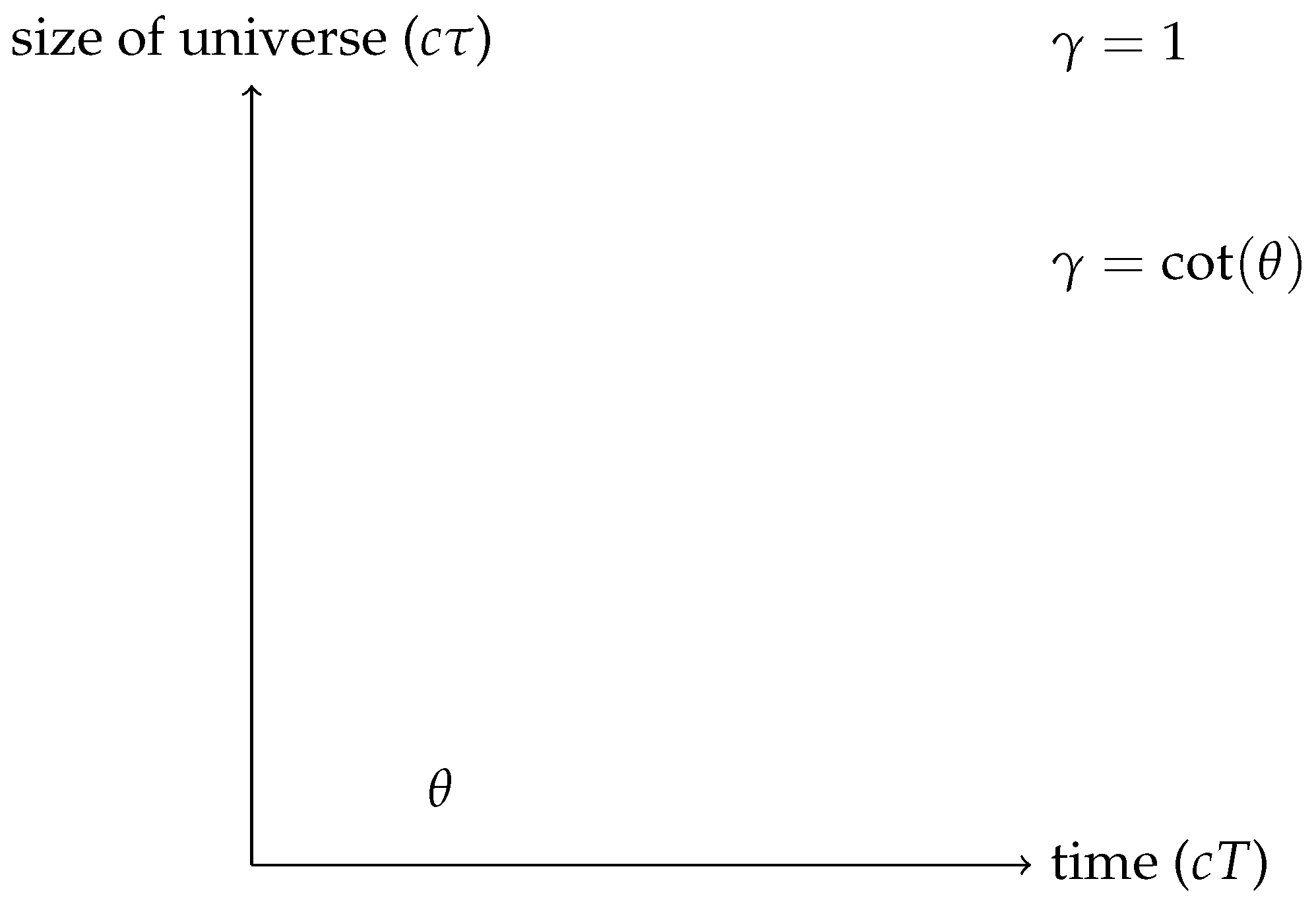Submitted:
20 December 2023
Posted:
29 December 2023
Read the latest preprint version here
Abstract
Keywords:
Introduction
Theory
Applying Theory
Hypothesis
Conclusion
References
- Lorentz, H.A. Electromagnetic phenomena in a system moving with any velocity smaller than that of light. In Collected Papers: Volume V; Springer, 1937; pp. 172–197.
- Poincaré, H. La dynamique de l’électron; A. Dumas, 1913.
- Foster, J.; Nightingale, J.D.; Foster, J. A short course in General Relativity; Springer, 1995.
- Lemaître, G. Un Univers homogène de masse constante et de rayon croissant rendant compte de la vitesse radiale des nébuleuses extra-galactiques. Annales de la Société Scientifique de Bruxelles, A47, p. 49-59 1927, 47, 49–59.
- Chown, M. The Oxford Companion to Cosmology by Andrew Liddle and Jon Loveday, and Cosmology by Steven Weinberg| The Oxford Companion to Cosmology, Andrew Liddle and Jon Loveday, Oxford University Press,£ 35, 9780198608585| Cosmology, Steven Weinberg, Oxford University Press,£ 45, 9780198526827, 2008.
- Akpootu, D.O.; Salifu, S.I.; Nnaemeka, O.C.; Adesina, S. Comparative Study on Mass loss by the Sun and Energy Available for Utilization between two Tropical Stations in Nigeria. International Journal of Adv in Sci Res and Eng (ijasre) 2020, 6, 82–91.
- Schwarzschild, K. Über das gravitationsfeld eines massenpunktes nach der einsteinschen theorie. Sitzungsberichte der königlich preussischen Akademie der Wissenschaften 1916, pp. 189–196.
- Noerdlinger, P.D. Solar mass loss, the astronomical unit, and the scale of the solar system. arXiv preprint arXiv:0801.3807 2008. [CrossRef]
- Jiao, Y.; Hammer, F.; Wang, H.; Wang, J.; Amram, P.; Chemin, L.; Yang, Y. Detection of the Keplerian decline in the Milky Way rotation curve. Astronomy; Astrophysics 2023, 678, A208. [CrossRef]
- Shukure, N.T.; Tessema, S.B.; Mengistu, E. Mass-loss varying luminosity and its implication to the solar evolution. Proceedings of the International Astronomical Union 2019, 15, 403–404. [CrossRef]
- Ruiz-Lara, T.; Gallart, C.; Bernard, E.J.; Cassisi, S. The recurrent impact of the Sagittarius dwarf on the Milky Way star formation history, 2020, [arXiv:astro-ph.GA/2003.12577]. [CrossRef]

Disclaimer/Publisher’s Note: The statements, opinions and data contained in all publications are solely those of the individual author(s) and contributor(s) and not of MDPI and/or the editor(s). MDPI and/or the editor(s) disclaim responsibility for any injury to people or property resulting from any ideas, methods, instructions or products referred to in the content. |
© 2020 by the author. Licensee MDPI, Basel, Switzerland. This article is an open access article distributed under the terms and conditions of the Creative Commons Attribution (CC BY) license (https://creativecommons.org/licenses/by/4.0/).




